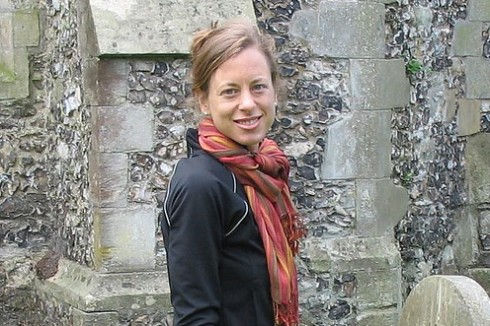Laura Stark: New Sociology and Science in Society Assistant Professor

Laura Stark has joined the Department of Sociology and the Program in Science in Society as assistant professor.
Her research focuses on the social history and sociology of medicine, research ethics, human subject research, Institutional Review Boards (IRBs), and group/committee decision-making in healthcare.
Stark graduated from Cornell University in 1998 with a bachelor’s in communication. She went on to obtain a Master’s and a Ph.D. in Sociology from Princeton University, ending in 2006. She was awarded the biannual prize for best dissertation from the History of Science Society’s Forum for the History of the Human Sciences for her work titled “Morality in Science: How Research is Evaluated in the Age of Human Subjects Regulation.”
Stark was a postdoctoral fellow in Northwestern University’s Department of Sociology and Program in Science in Human Culture Program. She been working for the National Institutes of Health (NIH) in Washington D.C. since she left Northwestern in 2008. She is completing a Stetten Fellowship in the Office of NIH History and NIH Clinical Center.
This fall, she is excited to be teaching The Sociology of Medicine (SOC 259) and Regulating Health (SOC 261), both part of the Science in Society Program. Next spring, she will return to NIH to complete her fellowship.
Stark is author or co-author of several articles, including “Victims in Our Own Minds? IRBs in Myth and Practice,” which was published in 2007 in the Law and Society Review. She is currently working on a book manuscript tentatively titled “Behind Closed Doors: Deciding How to Treat Human Subjects from the Clinic to the Committee Room.” The book is set to published by the University of Chicago Press.
“The book is about changing ideas about human subjects and how to regulate protections of human subjects,” Stark says.
Rather than being focused on what is normative, Stark’s book will explore “social aspects” of clinicians, ethicists, and others all coming together in a democracy such as the United States “to be able to make decisions together about how people should be treated.”
“What’s really interesting to me about the social study of medicine is that, over time, in different places and in different countries, there are different ideas about what people’s bodies are made up of; what their minds are made up of. And this has implications for human rights,” she says.
Some beliefs that Stark explores which might be taken for granted in the United States are that certain categories of people, such as men and women and children and adults are different from one another in very profound ways when it comes to medical research.
“As ideas change over time, people’s ethical standards change as well,” she says.
Stark lives in Middletown and enjoys biking.
SAVE THE DATE – October 7th
Stark will screen a new documentary on stem cell research policy, called “The Accidental Advocate” during the week of Oct 8. She hopes that the wider Wesleyan community and students from all majors might be interested in viewing the film, which explores one person’s desire to learn more about the complex–and highly politicized–world of stem cell research.
“The filmmaker and her father (a paralyzed former physician who is the protagonist in the documentary) are scheduled to visit campus that week, as well,” she says.

